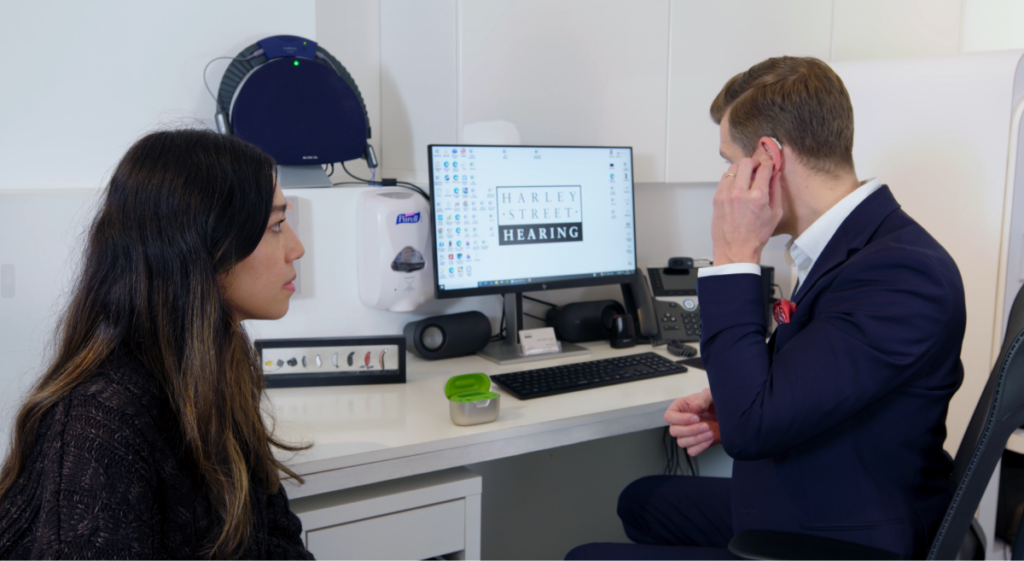Matthew Allsop on hearing loss and cognitive decline
Have you ever wondered if having a hearing loss means you’ll suffer from dementia? And can hearing aids help to prevent it?
Today’s blog is a deep dive into a topic that’s both concerning and intriguing: the connection between hearing health and cognitive wellness. And let me start off by saying, I’m no expert in dementia, but I’m passionate about sharing evidence-based information in a way that’s easy to understand.
Alzheimer’s fake news
Recently, a patient came to my clinic after a distressing experience at a national chain in the UK. They’d been told that if they didn’t wear hearing aids, they would, in no uncertain terms, develop Alzheimer’s.
This is a claim that’s not only misleading but downright infuriating. In my opinion, hearing loss alone and the disability that people experience due to having a hearing loss is a big enough reason to warrant wearing hearing aids.
So, let’s set the record straight.

What the evidence says on hearing loss and cognitive decline
There is growing evidence in the media linking dementia and hearing loss, which is becoming harder and harder to ignore, that is, if it’s interpreted correctly. Let’s take a look at some actual evidence:
- In 2011, Dr. Frank Lin of Johns Hopkins concluded that a mild hearing loss will potentially double the risk for cognitive decline, a moderate hearing loss will triple the risk, and a severe hearing loss will quintuple your risk.
- A huge 25-year study involving almost 4,000 people with hearing loss by Dr. Hélèna Amieva and her colleagues in France concluded that there is a strong link between hearing status and the risk of disability, dementia, and depression.
- More recently, in The Lancet in 2020, it was indicated that hearing loss is the number one modifiable factor for preventing dementia for people in their mid to later life.
These figures are alarming, but it doesn’t mean hearing loss guarantees dementia.
Globally, around 55 million people suffer from some form of dementia. However, while we all lose some degree of brain processing power as we age, it’s relatively rare or unlikely that you’ll experience dementia or Alzheimer’s, with only around 2% of the population between the ages of 65 to 69 actually suffering from dementia. This figure does increase to about 33% by the age of 90.
So, while cognitive decline is a natural part of ageing, it doesn’t have to lead to dementia.

How hearing aids can help with dementia prevention
There is a lot of time, energy, and resources being poured into this subject, with evidence continuing to grow around how you can improve your chances of keeping your brain sharp throughout your entire lifetime. And guess what? Maintaining good hearing health is one of them.
HearingTracker recently recorded an interview with four experts on cognitive decline, dementia, and hearing loss. Two of the researchers, Dr. Victoria Sanchez and Dr. Julia Sarant, are currently working on some pretty groundbreaking studies revolving around how hearing aids can improve your chances of staving off the effects of cognitive decline as you get older.
The first study, ACHIEVE (Aging and Cognitive Health Evaluation in Elders), found that using professionally fit hearing aids cut in half the rate of cognitive decline for the less healthy group. For both groups, hearing intervention was found to improve communication, social functioning, and to reduce loneliness, which other studies have shown are all factors that have been tied to cognitive status.
The second study, ENHANCE (Evaluation of Hearing Aids and Cognitive Effects), supports those from the ACHIEVE study and suggests that hearing aids may be able to forestall cognitive decline by as much as 3 years.
Both of these studies are ongoing, meaning that in reality, 3 years isn’t much time to study an ageing and mental health status, and there’s a lot more research to be done and questions that need to be answered.

Why you should prioritise hearing health
Moreover, hearing intervention improves communication, social functioning, and reduces loneliness—all factors tied to cognitive health. So, hearing aids aren’t just about improving hearing; they’re about preserving cognitive wellness.
However, addressing hearing loss isn’t solely the responsibility of audiologists. Primary care physicians play a crucial role in identifying hearing issues and referring patients for appropriate care. It’s a two-way street that requires collaboration and awareness.
Now, in the age of advanced technology and heightened awareness, there’s no excuse for neglecting hearing health. Modern hearing aids offer incredible benefits, from improved functionality to sleek designs. And with ongoing research and discussions, the stigma surrounding hearing loss is gradually eroding.
So, if you’ve noticed changes in your hearing or cognitive abilities, don’t wait—seek help. And remember, taking care of your hearing isn’t just about hearing better; it’s about safeguarding your cognitive wellness.
Harley Street Hearing offers professional hearing tests that can effectively diagnose hearing loss, and our clinical audiologists can devise suitable treatment solutions such as hearing aids to prevent further decline in your hearing abilities.
To learn more about the latest advancements in hearing aids, be sure to check out our video on the best hearing aids of the year.
Until next time, take care of your ears and your brain!
Does Hearing Loss Cause Dementia? The Evidence Explained…
Matthew Allsop is a Partner at Harley Street Hearing and the content creator for Hearing Tracker, where he shares his honest opinions on all things to do with hearing health and hearing aid technology. Hearing Tracker is the world’s first truly independent resource for hearing aid customers. You can view his video on hearing loss & dementia below.
Enjoy this article? You might be interested in some of our others:












